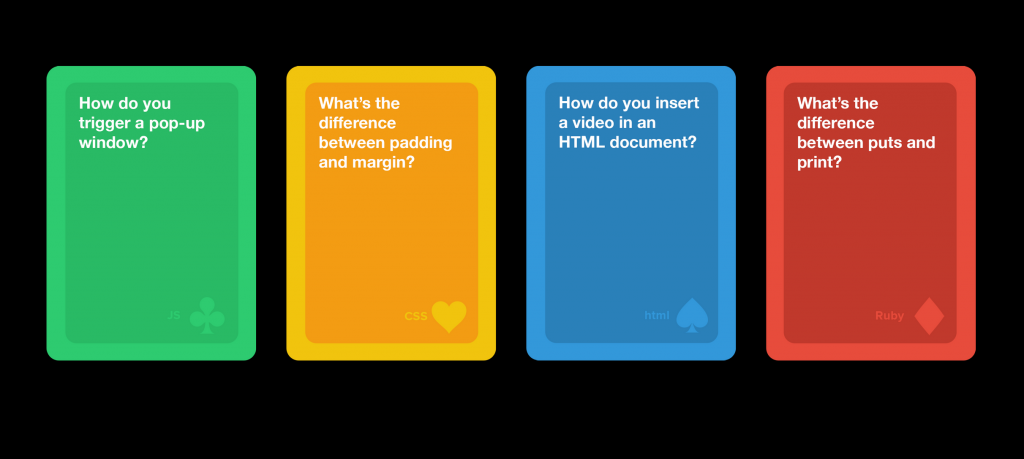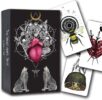Coding With Card Games
by Katie Coopersmith © 2017 Gifts for Card Players
If you think computer programming (coding) seems intimidating, you’re certainly not alone! Computer anxiety is very common, especially among those who don’t use computers too often, and programming can seem like an incomprehensible and utterly unattainable secret club to which entry is barred for everyone except certified geniuses.
However, if you’re a card player, you might already have more of an aptitude for coding than you think.
In a turn of events that likely made many adult-aged programmers quake in their boots for fear of being replaced, coding was recently introduced into the B.C. school curriculum from kindergarten to grade 12. That’s right: from the age of 5, little British Columbians will be trained in the witchy ways of HTML, Java, and probably a host of programming languages that we can’t even imagine at this point.
However, these kids won’t be hunched over laptops in a darkened room while they learn to code – at least not at first. Vancouver School District 43 is planning to introduce the principles of computational thinking through well-known games such as cards, chess, and Rubik’s cubes. (Source: Tri City News) New information will be presented in these familiar, unplugged formats, which educators say is an extremely efficient method of teaching “algorithmic thinking”. Nicole Cruz, one of the teachers behind this initiative, says that even technologically-undereducated teachers will be able to teach this new curriculum with relative ease.
“You don’t need to be computer experts,” she said. The district wants to “[take] the fear out of coding and computational thinking”.
This is a super exciting development for the future of technology, especially for girls. A 2010 study examining a sample of sub-Saharan African students studying computer programming found that although there were more similarities than differences between male and female students’ programming ability and performance, there were significant differences between the genders’ perceptions of themselves as programmers. The female students were far more likely to underestimate their competence and self-efficacy in regards to programming.
These instances of women fearing that they are unfit to code often leads to them dropping out of the field (or avoiding it altogether), an unfortunate trend that is still seen around the world today. Although the proportion of girls and women who enter STEM (science, technology, engineering, and math) fields like computer science is certainly increasing, women are still seriously outnumbered by men in these professions. (Source: ACM Digital Library)
That’s why the fact that girls are going to be taught with the knowledge that they can code – that it’s really not that hard! – from a very young age is so exciting.
If you’re an intrigued adult who has long since aged out of the school system, never fear! You too can learn to code using the magic of cards. There are a variety of online tools out there that teach coding using card-based methods, such as the bombastically user-friendly Code Cards game (available online for printout). There’s also Littlecodr, the “card game that teaches kids how to code” but is also a perfectly respectable tool for adults. Website Notable Women in Tech featured a fantastic article that compiled 10 ways to teach computational thinking using a deck of cards. Highlights include methods of teaching sorting algorithms and cryptography.
The best news of all for any card-playing adult is that your affinity for bridge, hearts, poker, or whatever your game may be has likely already trained your brain to think computationally. And, as Mosher’s Law of Software Engineering states, “Don’t worry if it doesn’t work right. If everything did, you’d be out of a job.”





